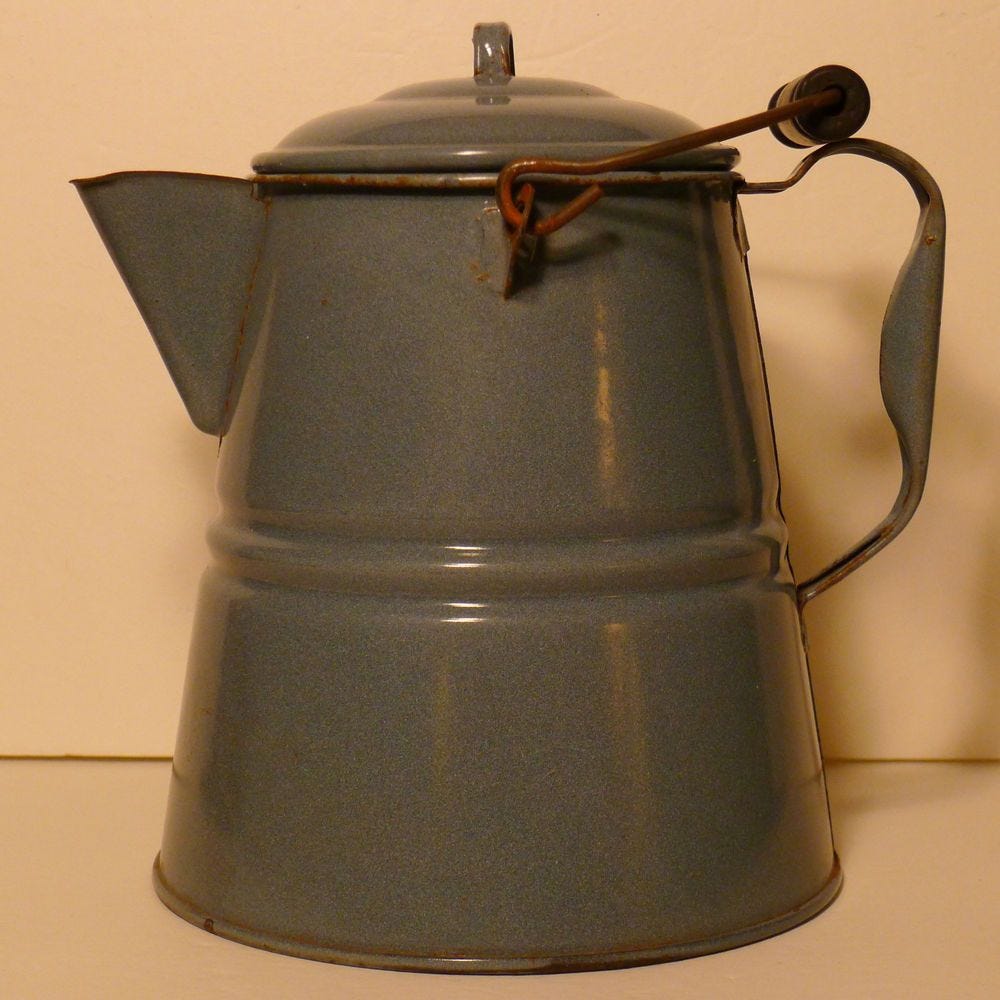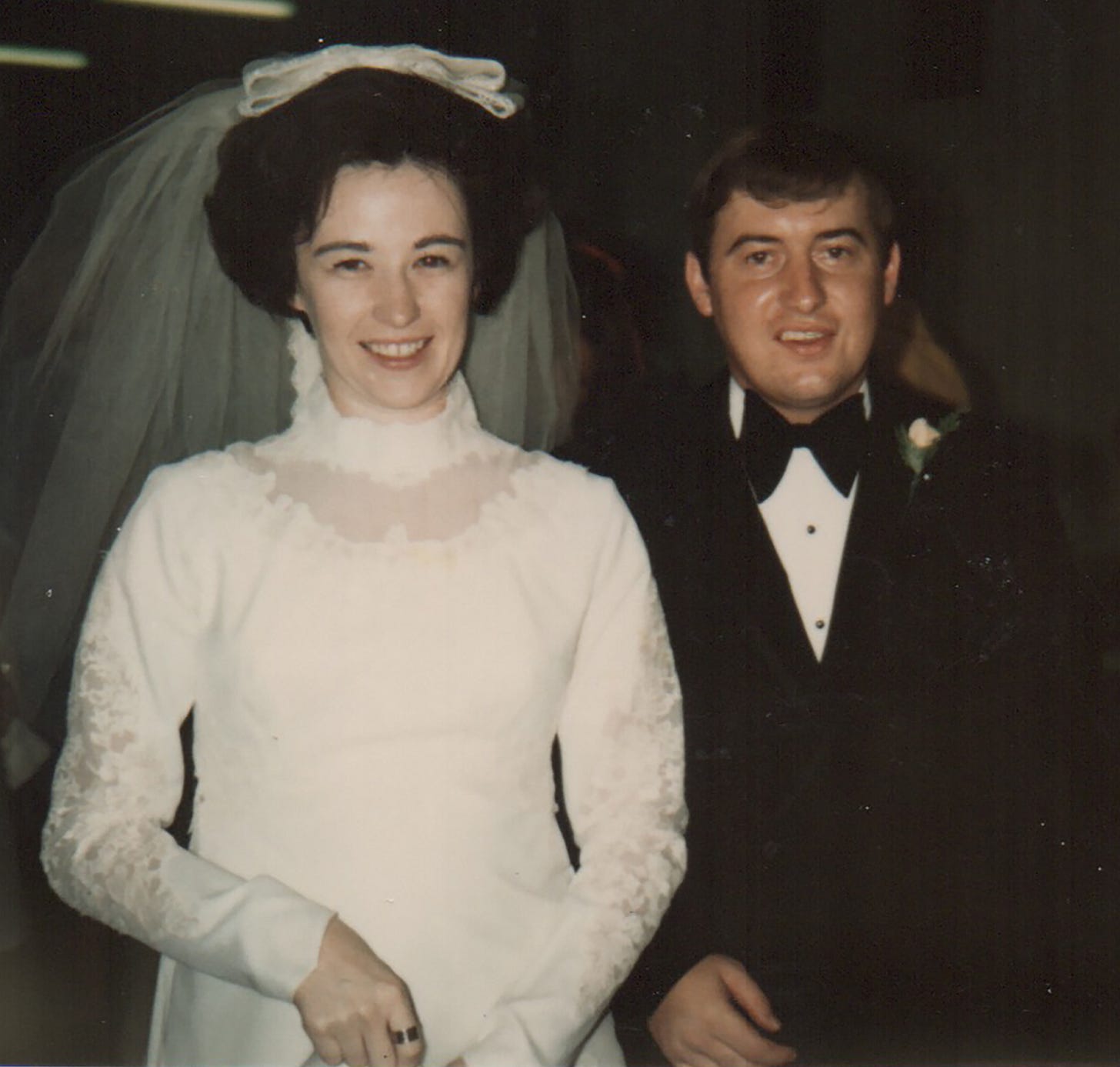Fifty Issues, Fifty Years Ago
Dear Friends:
Substack tells me this Shenny is my 50th. Fifty Shennys? A milestone! I want to celebrate it as it is, on face value, but that’s not the sort of person I am.
I’m the sort who asks what does it mean, what does it all add up to? Quantitatively, the first 49 issues come to 88,071 words, which when I look at that number I see a book—the book I’m writing perhaps, this halfway-done draft of which is currently at 43,000 words.
Could I have finished my book by now if I didn’t have Shennys due? (Well, ‘due’.) A memoir is harder to write than 49 newsletters. I wish it weren’t so, and in the face of this data I’m left wondering what Shenny has taught me about writing memoir.
My first answer is nothing. I’ve learned nothing. Substack letting me shove a Shenny in your inbox each fortnight has taught me things like which posts are the most read, or the least read, but data doesn’t help me work better through the fog of memory. Data certainly doesn’t help me avoid lying, or hedging the truth, or painting myself a little prettier.
If anything, it’s the opposite, what with all these engagement metrics. But after 2 years of hearing from you readers, Shenny has reminded me of the undeniable power of sharing stories.1 I’ve learned this from the many times you’ve reached out to say, in one form or another, Me too.
Thank you for reading, for still being here after 50 of these. It means more to me than you can know. To celebrate the milestone, this week’s Main Matter is a story about the time in my life, 50 years ago, when I was -4 years old.
Gratefully yours:
Dave
Endorsements
1. Eggshells in Your Coffee Grounds
Over the holidays, I watched a stage musical about Lutheran church ladies in Minnesota, and there was repeated reference made to egg coffee, boiled in the kind of big pitchers you see on TV wagon trains:
N.’s mom and aunts explained they’d crack a whole egg in with the fresh grounds, shell and all, stir it into a big clump, and boil for a few minutes. They called it ‘delicious’. I gave it a try once in my kitchen, boiling in a pan and straining through a filter-lined sieve, and it was a cumbersome mess, but the coffee was…I wouldn’t call it delicious so much as perfectly unimpeachable. So I tried crumbling up an egg shell in the filter basket of our drip machine (the very endorsable Technivorm Moccamaster), then dumping the grounds on top. Brew as normal and voila: astonishingly smooth coffee. Not endorsed for coffee you already love the taste of, but rather when you’re all out and have to sub in the cheap stuff, or when you’re staying at your folks’, say. Eggshells are like autotune for coffee: they mellow out anything sharp or flat.
2. Letting Yourself Be Touched By Strangers
At the release party for her new novel, Headshot, my pal Rita Bullwinkel talked about how competitive sports (her novel is set at a girls boxing tournament) is one of the few ways it’s socially acceptable for strangers to touch each other. She called this a thing itself to value in sports, and I think I agree. Picking up from last issue’s bit about needing community, here I want to endorse non-sexual physical contact between strangers. Like when the bus is overfull, and jerky braking sends your shoulder innocuously into the shoulder of the person standing inches away, or the outside of your thigh being pressed for ten stops into the outside of the thigh of your neighboring seatmate. These micromoments balance out the sound and smell horrorshow of a crowded bus. I keep thinking of how for nearly two years COVID made us regard one another as walking toxins to steer wide of. Actively touching others remains a danger, of course, given varying personal boundaries, so as a corrective on the pandemic’s alienation, I’m trying to take a passive approach, send out whatever signals that this body, which contains just another person, is okay to touch.
Fifty Years Ago: A Memoir
The morning of April 4, 1974, Mom and Dad woke in their new townhouse to horrible news: a ‘super outbreak’ of tornadoes overnight, all across the midwest. More than 140 touched down in 13 states, one even reaching Staunton, Va., just 100 miles southwest of them.
All told, 315 people were killed by the weather. My sister Shani was 19 months old.
It was a Thursday, so Dad got dressed and drove the Grand Prix to Bethesda, another day at the office, making maps for the Department of Defense. Mom got Shani fed and settled in for another day of keeping a baby alive. One afternoon, Shani was in her high chair, all hard wood with just a leather strap through her legs to keep her from sliding out. Mom stepped outside to talk to a neighbor, and the door locked behind her.
She couldn’t get back in. Shani was just sitting there, by the back window. What if she slid out and fell? What would that mean? Thank god Dad came home ten minutes later. Another time, Shani was laughing and playing and crawling around the hallway and then she went limp, just like that. Mom had to slap her around a little until she came to.
It was scary. A baby could bring you terror, at any moment. For the most part, it was easy work. They had a little motorized rocker swing Mom could put the baby in for a while—though the cat, Baba, liked it better. She could rock for hours, that cat, back and forth, tick-tocking like a pendulum.
The townhouse was in Tralee, the newest development built in Herndon, which they liked for its schools and sense of community. Herndon was an actual town, with a mayor and councilmembers, its own police, whereas Reston, where they once lived, was just another area of the county. Plus, Mom’s 2nd-cousin-once-removed Janet lived there with her husband, Vince; they were trying for their first kid.
Not that Shani had any shortage of kids to play with in Tralee. With houses around $27,000,2 the neighborhood was designed for young families.
Some afternoons, Donna next door brought her boy over for Shani to toddle around with. Reuben and Eliza lived at the end of the row, and they had two girls. There wasn’t a playground in the neighborhood, but Bready Park was just down the street. Shani had a little tricycle.
They lived together, the three of them, at the furthest edge of town. Mom made spaghetti for dinner, burgers, meatloaf, hot dogs, stuffed peppers, working from cookbooks she got at her wedding shower 4 years prior. Betty Crocker’s Good & Easy. Dinner for Two. Dad went in with a bunch of the neighbors on a bulk deal for lumber and they built their own fences around their backyards. Upstairs, Mom and Dad had their bedroom and Shani had a nursery. The third bedroom they made into a den, where they put the 26” color TV they bought at Sears.
Erica Kane was hot shit on All My Children. Mom watched every afternoon, As the World Turns, too. The news that month was obsessed with heiress Patty Hearst, now a sudden member of the Symbionese Liberation Army, codename Tania. They’d voted for President Nixon, and every day came something else about that guy. Whatever involvement he had in Watergate, the IRS had just announced that he owed $432,787.13 in back taxes. Dad made $12,000 a year.
Mom had a job at a research lab, but left it just months before Shani was born. It was accounting work, nothing thrilling, but she once got to pick up monkeys from Dulles—the lab did research on animals. The airport was just across the town line from Herndon. Some weekends, they’d drive over and head up to the observation deck, holding Shani up and pointing out the glass at all the planes taking off for distant cities.
They were just 27, 28 years old, impossibly young. The pink of youth. What did they do with their time? They had parents of their own who drove down from Pennsylvania and Maryland to see the baby, stay the weekend on the sofabed in the TV room. They didn’t go out to restaurants. Restaurants were too expensive, and Mom worried about how Shani would act. She didn’t want to be the kind of mom people whispered about.
They’d joined the Herndon Jaycees in 1971, a group of boosters for the town’s businesses, selling Xmas trees and fireworks3 and beer at the annual Herndon Festival at the town square. Just 3 years in, Dad was voted President. That year, in 1974, he ran for State Vice President against a guy named Myron from Chantilly, and it wasn’t even close.
High times for the young Maddens. Most of their friends were Jaycees, and when they could get a sitter Mom and Dad would take over beers and Fuzzy Navels for a night of cards or board games, everyone’s ashtray steadily filling. Dad smoked Marlboro reds. Mom didn’t smoke anything.
Weekends in the summer, someone inevitably hosted a cookout in their backyard. Or a crab boil when they were in season and you could grab bushels cheap from any roadside stand over in Maryland. The guys would BS with the guys and the gals BS’d with the gals. Half of them moms already, the other half hoping. In their own circle, away from the men, they’d all share tips about birth control, or the way to do it if you want to have a boy, the way to do it if you wanted a girl.
Mom knew she wanted another girl, but not yet. She didn’t want two in diapers, so she was happy to wait for now, until Shani was a little older and could maybe help out with the new baby. There would be time. There was so much time ahead of them. The Bicentennial was coming up in 1976, two hundred years of being America. Mom would get the second daughter she wanted that year: Jenny Lynn. They never planned on having a third kid, but they kept it, when it came.
This week’s thing I did not buy at the antique store is this tin Winston Lights ad:
Despite everything I argued in my (deeply unpopular) post on story chauvinism.
$169,000 in today’s money. Zillow tells me Tralee 3-bedrooms now sell for around $440,000.
q.v. ‘In Fireworks Lie Secret Codes’ from July 23’s Super Sloppy Double Issue.










When I smoked, particularly when I was in Pittsburgh, I smoked Winston Lights.